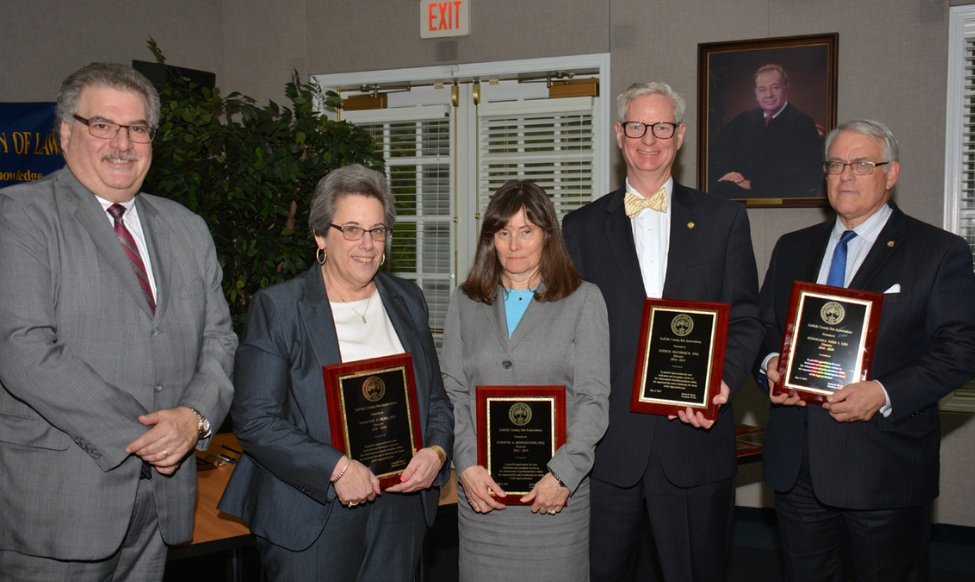By Patrick McCormick
On May 7, 2019, the Court of Appeals in 159 MP Corp. v Redbridge Bedford, LLC, 2019 WL 1995526, agreed that a tenant’s waiver of the right to bring a declaratory judgment action based upon the specific terms of the commercial lease is enforceable. This waiver effectively precluded the tenant from obtaining a Yellowstone injunction, and could now allow commercial landlords to limit their tenants’ litigation options when landlords allege lease violations by their tenants.
In a split decision, the Court of Appeals ruled in favor of the right to freedom of contract so long as no laws are violated. Notably, the dissent reasoned that the tenant’s ability to litigate in summary proceedings was not sufficient to deny the tenant’s ability to commence a declaratory judgment action. Although the dissent noted that New York’s legislative history consistently sustained the right to declaratory judgment action, in keeping with other common-law decisions and with precedent dating back to England, both sides agreed that freedom of contract would be upheld in the interests of the safety, stability and the betterment of society, not as an individual right. But, the majority and minority disagreed as to whether this particular clause furthered that public policy.
The case concerned two commercial leases which granted Plaintiffs a twenty-year lease to operate a Foodtown supermarket, with an associated storage space, on a property in Brooklyn. Within each lease, Paragraph 67(H) stated: “Tenant waives its right to bring a declaratory judgment action with respect to any provision of this Lease or with respect to any notice sent pursuant to the provisions of this Lease…” In March 2014, Defendant (landlord) served Plaintiffs (tenant) with a default notice and demanded Plaintiffs cure the violations or their leases would be terminated. Tenant subsequently commenced an action seeking a declaratory judgment that they hadn’t defaulted and sought a Yellowstone injunction to toll the cure period and prohibit the landlord from terminating the leases while the matter was before the Court.
In upholding the lease waiver provision, the Court of Appeals affirmed the lower Court’s observation that absent “violation of law or transgression of strong public policy,” both parties were free to execute whatever agreement they deemed acceptable (see 159 MP Corp. v. Redbridge Bedford LLC, 2015 NY Slip Op 32817(U) and Rowe v. Great Atlantic & Pacific Tea Co., 46 N.Y.2d 62 (1978)) and held that “there [was] no reason to relieve them of the consequences of their bargain” (see Oppenheimer & Co. v. Oppenheim, Appel, Dixon & Co., 86 N.Y.2d 685 (1995)). The Court further assessed that the waiver did not prevent Plaintiffs from seeking all legal redress, that they had access to legal counsel, and that the terms of the agreement were very clear and precise and thus should be enforced “according to its terms” (see Vermont Teddy Bear Co. v. 538 Madison Realty Co., 1 N.Y.3d 470 (2004)). The Court further held that “in light of strong public policy favoring freedom of contract [(see New England Mut. Life Ins. Co. v. Caruso, 73 N.Y.2d 74 (1989)) and as a right granted in the Constitution (see U.S. Const. art. I, § 10[1])], [the] parties may waive a wide range of rights.”
In this case, public policy was upheld in favor of the landlords’ right to evict due to the specific language agreed to in the lease. This decision has the potential to alter landlord-tenant law in New York State for years to come, as commercial landlords will surely include a waiver of declaratory and Yellowstone relief in their leases going forward. Therefore, commercial tenants and their counsel should carefully review all draft agreements for explicit waivers of their right to seek Yellowstone relief, injunctive relief or declaratory judgments, and think carefully about whether the costs outweigh the benefits before giving up such legal recourse.









